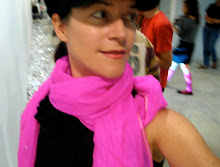It could also be age, a San Francisco 70' upbringing, gender, education (Bryn Mawr is proudly feminist)—but i prefer to think of it as the new wave. The genre of the subjective. How can we speak for others if we have not developed our own position? How can we communicate effectively without bringing in our self? Besides, there is no objectivity. The world is a matter of perspective.
One of the most powerful and controversial effects that woman educators have had on the discipline overall is the emergence of a type of work that is more personal. This is directly derived from elements of the feminist movement when many educators gravitated toward subjective interpretation, encouraging diversity and multiple perspectives. While definitely not an inherent “feminine” approach, there’s a method embraced by many of these women that focuses on the development of the individual, and ensuring that students can append meaning to their work
“I always try to approach each student as an individual and help each cultivate his or her unique capabilities as they acquire fundamental knowledge and skill sets,” says McCoy. “I also encourage each student to develop his or her own voice—to learn to articulate their thoughts about design and to participate in discussions equally with others.”
“To encourage students to make work that means something requires more than amplifying opportunities for self-expression, and this is what I personally feel needs to happen—and is happening—at many schools,” says Helfand, a Yale professor. “Students need a skill fluency as much as they do many other things.
for the full article


No comments:
Post a Comment